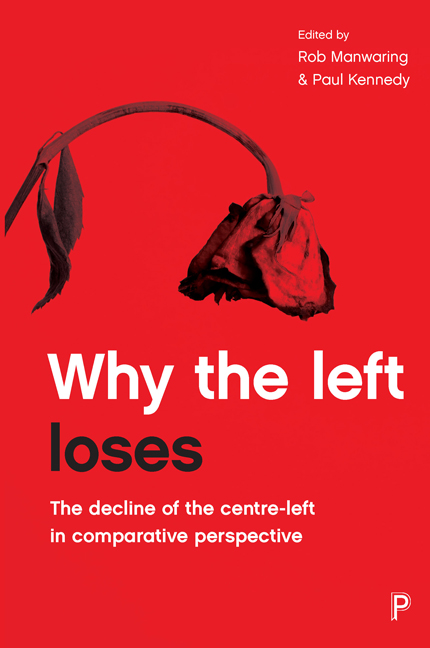Book contents
Foreword
Published online by Cambridge University Press: 08 April 2022
Summary
The decline of the centre-left over the past years is one of the most alarming trends in Western politics. During the latter part of the 20th century such parties either ran the government or led the loyal Opposition in virtually every Western democracy. Germany's Social Democratic Party (SPD), once the most powerful party of the left in continental Europe, currently polls in high 20s or 30s. The French Socialist Party was eviscerated in the 2017 elections, as was the Dutch Labour Party. Even the vaunted Scandinavian social democratic parties are struggling, reduced to vote shares in the 30 per cent range. The British Labour Party and the US Democrats have been protected from challengers by their country's first-past-the-post electoral systems, but the former has recently taken a sharp turn to the hard-left under Jeremy Corbyn, while the latter, although still competitive at the national level, is a minority party at the state and local levels, where a hard-right Republican Party dominates the scene.
The decline of the centre-left has hurt Western democracy. It has left voters free to be captured by extremist parties, particularly of the far-right populist variety, which threaten the liberal and perhaps even democratic nature of Western politics. In addition, centre-left parties played a crucial role in creating and maintaining the post-war order on which stable democracy was built following the Second World War. Without a revival of the centre-left, it is hard to see how this order and perhaps even well functioning democracy can be resuscitated. This book analyses the decline of the centre-left, and in so doing, may provide its supporters with the insights necessary to revitalise it.
Why the left loses focuses on three main issues the centre-left must confront: leadership, institutions/structural change and message/vision. The first is the most straightforward, but nonetheless crucial. Leaders represent and personify what parties stand for; in order to win, the centre-left needs leaders who can connect to a diverse and demanding electorate, and attractively, forcefully and effectively convey their party's messages. Attracting such leaders does not, of course, happen in a vacuum. Talented and ambitious individuals are drawn to parties they believe can deal with the challenges of the day. This brings us to issues of institutions/structural change and message/vision.
- Type
- Chapter
- Information
- Why the Left LosesThe Decline of the Centre-Left in Comparative Perspective, pp. 1 - 4Publisher: Bristol University PressPrint publication year: 2017

